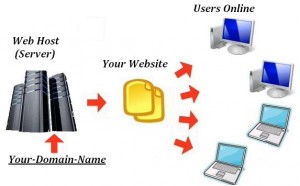Maintaining Your Web Hosting Account

Getting your site up and running is the first step toward managing a successful website. For the site to run smoothly, you must maintain your hosting account properly. Running a website involves more than just launching it and expecting visitors. Regular upkeep is the key to a website’s longevity and optimal performance. In this article, I will discuss several steps to keep your web hosting account optimized.
Back up Your Site Regularly
No matter how reliable your web hosting service is, maintaining your website backups is always a good idea. You can download the automated backup created by the hosting company, store it on a remote server (or locally), or create your backup. The latter allows you to choose backup formats and the files you want to backup.
Backing up a website is easy. CPanel and other control panels used by top web hosting companies have backup features built into them. You must run the backup routine to create a complete or partial backup as needed.
You don’t have another hosting account to store backup files. You can now use free cloud storage to secure your site. It is even possible to automatically store backups on the cloud due to third-party tools and web applications. With the backup files stored in the cloud, you no longer have to upload them whenever you need to restore your site manually.
Remove Unused & Duplicate Files
Removing unused and duplicate files is another good routine to incorporate into your web hosting maintenance plan. Error logs, development files, older versions of your site, and other unneeded files can quickly take up a lot of hosting space. Keeping them is perfectly fine if you use unlimited hosting, but it is not the most efficient way to maintain your account. The more unused files you keep, the larger your backup images will be and the more difficult it is to support them. Don’t forget to be extra careful when searching beyond the Public folder of your web hosting account; some seemingly unused files may be important.
Scan the web hosting account for duplicates regularly and remove them if necessary. Although scanning for duplicate files is not something you can do automatically from the control panel of your hosting account, there are FTP-enabled desktop apps and web tools that can help you complete this task in just a few clicks.
Clean Your Mailboxes
Most of us are used to not deleting emails. This is because we are pampered with gigabytes of free email storage space from companies like Google and Microsoft. With self-hosted email addresses, large, old emails can be a problem.
Luckily, most of the emails stored on the server can be stored locally on your computer; you only have to set your mail client to keep and delete them from the server. This way, your emails will not take up any hosting space.
If you don’t want to store emails locally, you can also store them online without using your web hosting space. Forward emails to a new, free email account for backup purposes; it’s as simple as that. Alternatively, you can regularly back up your old emails to an archive and delete them from the server afterward.
Optimize Your Databases
Most web owners neglect this particular step. This is because the size of a database is not easily visible on the control panel of most hosting companies. However, a database can easily take up much of your hosting space. Even worse, databases that are not optimized can significantly reduce the performance of your site.
If you are using WordPress as a CMS, for example, you will find many posts and page revisions stored in the main database. Although not always necessary, these revisions are stored for an extended period. As your site grows, you will hold more unused entries in your database. The result could be catastrophic; after a while, querying for a post can take longer than expected.
Similar to the previous steps, plenty of tools can help you automate the task of optimizing your database. Find a suitable one according to your web application, and you will have no trouble keeping the database compact and augmented.





